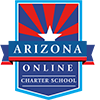With fall, the first report cards and parent-teacher conferences of the academic year arrive. La Paloma Academy, your Tucson charter school, is no exception to this rule. Information on these one-on-one sessions with your child’s teacher will be going home shortly, making this the perfect time to discuss how to ensure these meetings are successful and useful for all involved. Every year there is more research documenting the connections between academic achievement and parental involvement in schools. La Paloma believes firmly that parent engagement in education is vital to the academic success of every student, and encourages parents to be active participants in their student’s academic growth. We all—parents, students, teachers, staff, and administration—play important roles in the achievement of a shared goal: academic and character achievement.
Parent-teacher conferences offer a rare chance for a two-way conversation about a student between the people who spend the most time with him/her—the teacher and the parent or guardian. Make the most of this conversation. Below are a few suggestions to keep in mind when meeting with your student’s teacher.
Be Positive
- Teachers care! They want your child to succeed, to enjoy school, and to meet and, hopefully, exceed their potential.
- Remember that teachers are professionals, and that treating them as such sets a positive example for your child.
- A little kindness can go a long way. Try to be a good listener and consider what your child’s teacher has to say.
- Teachers follow schedules (just like the rest of us) and often their schedules do not have the same flexibility as those of other professionals. They’ll work with your schedule as much as possible to arrange meetings that work for everyone.
Be Prepared
Teachers prepare for parent-teacher conferences, but even more can be gleaned from these meetings if parents do the same. There are several ways to plan ahead in order to get the most out of these conversations.
- Talk to your child about what they are learning, what they like and do not like about school, and how they think they are doing in school.
- Review your child’s work from the quarter, including classwork, homework, tests, and other papers and projects. Keeping a file of your child’s work can make this process easier.
- Prepare a list of questions. Write them down!
- Write down information about your child that you want to share with the teacher. Everyone can forget details from time to time but if you take a written list you are sure to remember and if time runs short you can give the list to the teacher, who might be able to address the information later via phone or email.
- Think of ways to get involved in your child’s education and discuss them with his or her teacher, who can give you feedback on what he/she thinks will work best in your child’s particular situation.
- Speak to others about your child’s strengths and weaknesses, be they instructors, family members, or other school staff. This can give a helpful outsider’s perspective on your child.
Preparation is key—for parents and teachers!
Be Patient
Your child’s teacher has a lot of students and parents to meet with. A little patience and understanding on both sides can make for an overall positive experience for all.
- Arrive on time, or early to your meeting.
- Stay calm and listen to what the teacher has to say. Ask questions to understand all sides of a situation.
- Stay on track, but if the teacher mentions something you are not certain about, ask when it is brought up so you can both be on the same page.
- Make sure to find out the communication protocol before you leave. What is the best method of communication for both of you: email, phone, or something else entirely?
Most conferences are short, fifteen to thirty minutes. Try to make the most of the time you are allotted. This is where the preparation beforehand can come in handy, so you’re not scrambling for what to ask or what you wanted to say or communicate to the teacher.
Finally: Follow Up
What happens after the parent-teacher conference? Most articles on the subject offer a few consistent suggestions.
- Share the information with your child. They are part of the process, too, even if they weren’t at the meeting. Make them an active part of and voice in their own education. Stressing the positive can help them stay positive and confident.
- Follow through with goals discussed with the teacher. Whether you make an action plan to check your child’s agenda and homework nightly, or you simply wanted to keep in touch more regularly about his or her performance in class, follow through.
- Participate in school activities, both extra-curricular and academic. This can help telegraph the importance of education to your child as well as showing them that they are a priority.
Parents and teachers both play hugely important roles in the education of children. Putting forth the effort to work in collaboration with your child’s teacher can have a powerful impact on their school performance overall—in terms of academic achievement, in-school behavior, and character growth.
Thank you for all you do to support your child’s education and La Paloma Academy!

